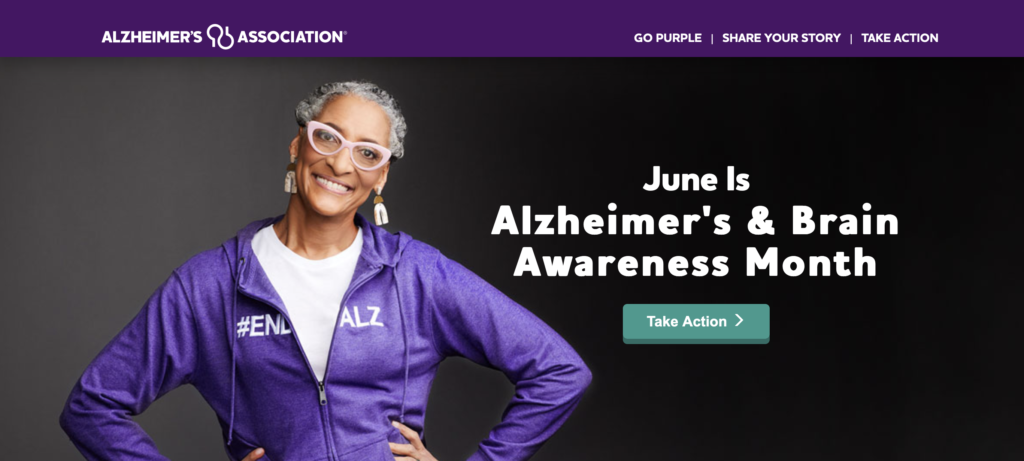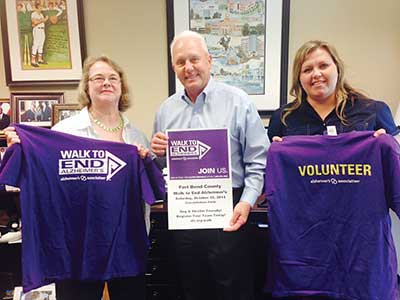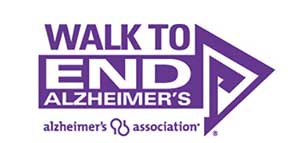
As a health editor, I’ve covered medical issues and disabilities for more than a decade. Sometimes I stumble across inspirational musings from friends, family, colleagues, and the general public. This Facebook post from Bill Lacy is the best yet!
This is a great list of suggestions for those caring for a loved one with dementia. I would add to make sure I was given cherry pie at least once a day…. Because you can’t always remember you love it, but when you eat it you know that it is something good! In honor of my dad.
I𝒻 𝐼 𝑔𝑒𝓉 𝒹𝑒𝓂𝑒𝓃𝓉𝒾𝒶, I’d like my family to hang this wish list up on the wall where I live. I want them to remember these things.
𝐼𝒻 𝐼 𝑔𝑒𝓉 𝒹𝑒𝓂𝑒𝓃𝓉𝒾𝒶, I want my friends and family to embrace my reality. If I think my spouse is still alive, or if I think we’re visiting my parents for dinner, let me believe those things. I’ll be much happier for it.
𝐼𝒻 𝐼 𝑔𝑒𝓉 𝒹𝑒𝓂𝑒𝓃𝓉𝒾𝒶, don’t argue with me about what is true for me versus what is true for you.
𝐼𝒻 𝐼 𝑔𝑒𝓉 𝒹𝑒𝓂𝑒𝓃𝓉𝒾𝒶, and I am not sure who you are, do not take it personally. My timeline is confusing to me.
𝐼𝒻 𝐼 𝑔𝑒𝓉 𝒹𝑒𝓂𝑒𝓃𝓉𝒾𝒶, and can no longer use utensils, do not start feeding me. Instead, switch me to a finger-food diet, and see if I can still feed myself.
𝐼𝒻 𝐼 𝑔𝑒𝓉 𝒹𝑒𝓂𝑒𝓃𝓉𝒾𝒶, and I am sad or anxious, hold my hand and listen. Do not tell me that my feelings are unfounded.
𝐼𝒻 𝐼 𝑔𝑒𝓉 𝒹𝑒𝓂𝑒𝓃𝓉𝒾𝒶, I don’t want to be treated like a child. Talk to me like the adult that I am.
𝐼𝒻 𝐼 𝑔𝑒𝓉 𝒹𝑒𝓂𝑒𝓃𝓉𝒾𝒶, I still want to enjoy the things that I’ve always enjoyed. Help me find a way to exercise, read, and visit with friends.
𝐼𝒻 𝐼 𝑔𝑒𝓉 𝒹𝑒𝓂𝑒𝓃𝓉𝒾𝒶, ask me to tell you a story from my past.
𝐼𝒻 𝐼 𝑔𝑒𝓉 𝒹𝑒𝓂𝑒𝓃𝓉𝒾𝒶 and I become agitated, take the time to figure out what is bothering me.
𝐼𝒻 𝐼 𝑔𝑒𝓉 𝒹𝑒𝓂𝑒𝓃𝓉𝒾𝒶, treat me the way that you would want to be treated.
𝐼𝒻 𝐼 𝑔𝑒𝓉 𝒹𝑒𝓂𝑒𝓃𝓉𝒾𝒶, make sure that there are plenty of snacks for me in the house. Even now if I don’t eat I get angry, and if I have dementia, I may have trouble explaining what I need.
𝐼𝒻 𝐼 𝑔𝑒𝓉 𝒹𝑒𝓂𝑒𝓃𝓉𝒾𝒶, don’t talk about me as if I’m not in the room.
𝐼𝒻 𝐼 𝑔𝑒𝓉 𝒹𝑒𝓂𝑒𝓃𝓉𝒾𝒶, don’t feel guilty if you cannot care for me 24 hours a day, 7 days a week. It’s not your fault, and you’ve done your best. Find someone who can help you, or choose a great new place for me to live.
𝐼𝒻 𝐼 𝑔𝑒𝓉 𝒹𝑒𝓂𝑒𝓃𝓉𝒾𝒶 and I live in a dementia care community, please visit me often.
𝐼𝒻 𝐼 𝑔𝑒𝓉 𝒹𝑒𝓂𝑒𝓃𝓉𝒾𝒶, don’t act frustrated if I mix up names, events, or places. Take a deep breath. It’s not my fault.
𝐼𝒻 𝐼 𝑔𝑒𝓉 𝒹𝑒𝓂𝑒𝓃𝓉𝒾𝒶, make sure I always have my favorite music playing within earshot.
𝐼𝒻 𝐼 𝑔𝑒𝓉 𝒹𝑒𝓂𝑒𝓃𝓉𝒾𝒶, and I like to pick up items and carry them around, help me return those items to their original places.
𝐼𝒻 𝐼 𝑔𝑒𝓉 𝒹𝑒𝓂𝑒𝓃𝓉𝒾𝒶, don’t exclude me from parties and family gatherings.
𝐼𝒻 𝐼 𝑔𝑒𝓉 𝒹𝑒𝓂𝑒𝓃𝓉𝒾𝒶, know that I still like receiving hugs or handshakes.
𝐼𝒻 𝐼 𝑔𝑒𝓉 𝒹𝑒𝓂𝑒𝓃𝓉𝒾𝒶, remember that I am still the person you know and love.”
ᴄᴏᴘʏ ᴀɴᴅ ᴘᴀsᴛᴇ in Honor of someone you know or knew who has dementia.

This month, I reflect back on a story I wrote for Katy Christian Magazine in 2014, “Millions Mobilized in the Walk to End Alzheimer’s.” The cause is personal — my grandmother had Alzheimer’s — and I’m happy to do everything possible to bring awareness and find a cure.
Health Editor Assignment
This past Labor Day, a special class of caregivers did not get a day of rest. HBO’s “The Alzheimer’s Project” shares that 70 percent of people with Alzheimer’s live at home, cared for by family and friends. 10 million Americans provide 8.5 billion hours of unpaid care to people with Alzheimer’s disease or other dementias. Those stricken with the disease eventually require round-the-clock attention.
Often described as “a long goodbye,” Alzheimer’s is an irreversible disease with no known cure. It erodes memory, changes personality and impairs reasoning… inside an otherwise healthy body. In general, those with Alzheimer’s live an average of 8 to 10 years after diagnosis, although that number varies from three to 20 years. “It’s not uncommon for the caregiver to die before the patient,” says Bill Couturié, who directed the HBO project.
The Facts
The Alzheimer’s Association website shares statistics that may seem overwhelming. An estimated 5.4 million Americans live with the disease – a number that may triple by 2050 according to researchers. In Texas, 340,000 are living with Alzheimer’s, a number that may increase to 400,000 by 2020. One in eight people aged 65 and older have Alzheimer’s, as do nearly half of people aged 85 and older (43 percent).
This disease demands our attention. “We must make the fight against Alzheimer’s a global priority. It’s up to every one of us to learn more about the disease and join the fight,” says Marisa Ramon, Outreach Coordinator for the Alzheimer’s Association, Houston & Southeast Texas Chapter.
October 18: Making a Difference
Beyond the daunting facts, there is hope. Every year, people walk to support Alzheimer’s care, support and research. This “walk for a cure” is a memorial for loved ones who have died. It honors those living with the disease. Some walk to recognize a selfless caregiver. In short, every footstep has personal significance.
The Fort Bend Walk to End Alzheimer’s kicks off with registration at 8 a.m. on October 18 at Constellation Field. Each year over 700 walkers form teams with family, friends, coworkers, neighborhood groups, and churches. This “family-friendly, elder-friendly, stroller-friendly, dog-friendly” event raises funds and awareness.
The Mayor’s Proclamation
On August 26th, Mayor James A. Thompson and the City of Sugar Land issued a proclamation in support of the Alzheimer’s Association Walk to End Alzheimer’s. Walkers from Sugar Land, Katy, Cy-Fair, and the greater Houston area join hundreds of cities across the globe in raising awareness for Alzheimer’s disease while encouraging citizens to get active in the ongoing battle against its rise.
Walk to End Alzheimer’s committee volunteers Helen Curd and Kerry Dannecker (pictured with Mayor Thompson) were on hand to receive the proclamation on behalf of the Alzheimer’s Association, Houston & Southeast Texas Chapter.
How to Get Involved
Visit www.alztex.org/walk for additional information on how to register for the Walk or make a donation. The Alzheimer’s Association is the center for help and hope. For care, support and local resources call the toll-free helpline at 1-800-272-3900.
###
Connect with a Health Editor
Contact me if you need the help of a health editor. From health and wellness reporting to writing, editing, white papers, and other content needs, I specialize in medical journalism. I also specialize in book editing and ghostwriting for these challenging journeys.
I’m glad to consult, brainstorm, evaluate, and collaborate! We’ll talk about scope, timeline, deliverables, and more! You can count on my services, my experience, and the vast amount of training I’ve undertaken to work in the world of words full-time.
Email melaniesaxton@icloud.com.




